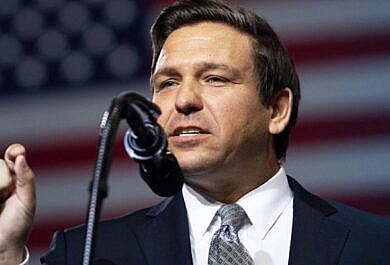The Wells Fargo CEO says it’s too hard to find qualified minority candidates. What happened?
Summary
In a Zoom meeting in June, Wells Fargo CEO Charles Scharf stated that the reason Wells Fargo and other large corporations struggle to meet diversity standards is because there is “a limited pool of Black talent to recruit from.”
- Scharf alluded to the pipeline problem, a fallacy that addresses causes of systemic racism and institutional inequality such as societal norms, limited access, heterogenous sourcing, tokenism, unfair treatment.
- In July, Scharf circulated an internal memo further underscoring the issue as an explanation for Wells Fargo’s struggle to meet diversity standards. The memo allegedly led to an internal backlash within Wells Fargo.
- Yesterday, Scharf’s comments were made public and he received nationwide backlash. He apologized for his “insensitive comments” and said that corporations can do more to improve diversity at their companies, especially in leadership positions.
- New York Congresswoman Alexandria Ocasio-Cortes responded to the news on Twitter, “perhaps it’s the CEO of Wells Fargo who lacks the talent to recruit Black workers.”
![]()
- Argues that Scharf’s statement is unequivocally untrue, and insinuates that his apology was not genuine.
- Invokes memories of Wells Fargo’s past scandals, which included a $1 billion settlement paid out to victims of predatory lending practices targeted at minorities and another lawsuit related to fraudulent accounts and mistreatment of customers.
- Implies that Scharf, who was hired to clean up the mess of these other scandals, should stick to finances instead of trying to make political or racial commentary.
- Includes coverage of outspoken politicians who claimed that the issue lies with Wells Fargo’s recruitment tactics rather than the quality or quantity of minority candidates.
- On social media, anecdotal evidence of discrimination by Wells Fargo recruitment teams, as well as empirical evidence disproving Scharf’s statement, are amplified by liberal users and accounts.
![]()
- Did not report widely on the incident, instead of focusing the spotlight on the ongoing protests.
- Generally seems sympathetic to Mr. Scharf, framing him as extremely apologetic for making insensitive comments which he claims were “misinterpreted” and not acknowledging his “unconscious bias.”
- Downplays Scharf’s statement as a simple gaffe, rather than a major scandal.
- Points out that “some progress” has been made under Scharf’s regime as CEO of Wells Fargo.
- Crucifies cancel culture in general, arguing that leftists
© Evelyn Torsher, 2020






